- Home
- P. G. Wodehouse
Wodehouse On Crime Page 4
Wodehouse On Crime Read online
Page 4
The wave of crime, then, which was to rock one of Shropshire’s stateliest homes to its foundations broke out towards the middle of a fine summer afternoon, and the persons involved in it were disposed as follows:
Clarence, ninth Earl of Emsworth, the castle’s owner and overlord, was down in the potting shed, in conference with Angus McAllister, his head gardener, on the subject of sweet peas.
His sister, Lady Constance, was strolling on the terrace with a swarthy young man in spectacles, whose name was Rupert Baxter and who had at one time been Lord Emsworth’s private secretary.
Beach, the butler, was in a deck chair outside the back premises of the house, smoking a cigar and reading Chapter Sixteen of The Man With The Missing Toe.
George, Lord Emsworth’s grandson, was prowling through the shrubbery with the air gun which was his constant companion.
Jane, his lordship’s niece, was in the summerhouse by the lake.
And the sun shone serenely down — on, as we say, the lawns, the battlements, the trees, the bees, the best type of bird and the rolling parkland.
Presently Lord Emsworth left the potting shed and started to wander towards the house. He had never felt happier. All day his mood had been one of perfect contentment and tranquillity, and for once in a way Angus McAllister had done nothing to disturb it. Too often, when you tried to reason with that human mule, he had a way of saying “Mphm” and looking Scotch, and then saying “Grmph” and looking Scotch again, and after that just fingering his beard and looking Scotch without speaking, which was intensely irritating to a sensitive employer. But this afternoon Hollywood yesmen could have taken his correspondence course, and Lord Emsworth had none of that uneasy feeling, which usually came to him on these occasions, that the moment his back was turned his own sound, statesmanlike policies would be shelved and some sort of sweet-pea New Deal put into practice as if he had never spoken a word.
He was humming as he approached the terrace. He had his programme all mapped out. For perhaps an hour, till the day had cooled off a little, he would read a Pig book in the library. After that he would go and take a sniff at a rose or two and possibly do a bit of snailing. These mild pleasures were all his simple soul demanded. He wanted nothing more. Just the quiet life, with nobody to fuss him.
And now that Baxter had left, he reflected buoyantly, nobody did fuss him. There had, he dimly recalled, been some sort of trouble a week or so back — something about some man his niece Jane wanted to marry and his sister Constance didn’t want her to marry — but that had apparently all blown over. And even when the thing had been at its height, even when the air had been shrill with women’s voices and Connie had kept popping out at him and saying, “Do listen, Clarence!” he had always been able to reflect that, though all this was pretty unpleasant, there was nevertheless a bright side. He had ceased to be the employer of Rupert Baxter.
There is a breed of granite-faced, strong-jawed businessman to whom Lord Emsworth’s attitude towards Rupert Baxter would have seemed frankly inexplicable. To these Titans a private secretary is simply a Hey-you, a Hi-there, a mere puppet to be ordered hither and thither at will. The trouble with Lord Emsworth was that it was he and not his secretary who had been the puppet. Their respective relations had always been those of a mild reigning monarch and the pushing young devil who has taken on the dictatorship. For years, until he had mercifully tendered his resignation to join an American named Jevons, Baxter had worried Lord Emsworth, bossed him, bustled him, had always been after him to do things and remember things and sign things. Never a moment’s peace. Yes, it was certainly delightful to think that Baxter had departed forever. His going had relieved this Garden of Eden of its one resident snake.
Still humming. Lord Emsworth reached the terrace. A moment later, the melody had died on his lips, and he was rocking back on his heels as if he had received a solid punch on the nose.
“God bless my soul!” he ejaculated, shaken to the core.
His pince-nez, as always happened when he was emotionally stirred, had leaped from their moorings. He recovered them and put them on again, hoping feebly that the ghastly sight he had seen would prove to have been an optical illusion. But no. However much he blinked, he could not blink away the fact that the man over there talking to his sister Constance was Rupert Baxter in person. He stood gaping at him with a horror which would have been almost excessive if the other had returned from the tomb.
Lady Constance was smiling brightly, as women so often do when they are in the process of slipping something raw over on their nearest and dearest.
“Here is Mr. Baxter, Clarence.”
“Ah,” said Lord Emsworth.
“He is touring England on his motor bicycle and, finding himself in these parts, of course he looked us up.”
“Ah,” said Lord Emsworth.
He spoke dully, for his soul was heavy with foreboding. It was all very well for Connie to say that Baxter was touring England, thus giving the idea that in about five minutes the man would leap on his motor bicycle and dash off to some spot a hundred miles away. He knew his sister. She was plotting. Always ardently pro-Baxter, she was going to try to get Blandings Castle’s leading incubus back into office again. Lord Emsworth would have been prepared to lay the odds on this in the most liberal spirit. So he said “Ah.”
‘I he monosyllable, taken in conjunction with the sagging of her brother’s jaw and the glare of agony behind his pince-nez, caused Lady Constance’s lips to tighten. A disciplinary light came into her fine eyes. She looked like a female lion tamer about to assert her personality with one of the troupe.
“Clarence!” she said sharply. She turned to her companion. “Would you excuse me for a moment, Mr. Baxter? There is something I want to talk to Lord Emsworth about.”
She drew the pallid peer aside, and spoke with sharp rebuke.
“Just like a stuck pig!”
“Eh?” said Lord Emsworth. His mind had been wandering, as it so often did. The magic word brought it back. “Pigs? What about pigs?”
“I was saying that you were looking like a stuck pig. You might at least have asked Mr. Baxter how he was.”
“I could see how he was. What’s he doing here?”
“I told you what he was doing here.”
“But how does he come to be touring England on motor bicycles? I thought he was working for an American fellow named something or other.”
“He has left Mr. Jevons.”
“What!”
“Yes. Mr. Jevons had to return to America, and Mr. Baxter did not want to leave England.”
Lord Emsworth reeled. Jevons had been his sheet anchor. He had never met that genial Chicagoan, but he had always thought kindly and gratefully of him, as one does of some great doctor who has succeeded in insulating and confining a disease germ.
“You mean the chap’s out of a job?” he cried aghast.
“Yes. And it could not have happened at a more fortunate time, because something has got to be done about George.”
“Who’s George?”
“You have a grandson of that name,” explained Lady Constance with the sweet, frozen patience which she so often used when conversing with her brother. “Your heir, Bosham, if you recollect, has two sons, James and George. George, the younger, is spending his summer holidays here. You may have noticed him about. A boy of twelve with auburn hair and freckles.”
“Oh, George? You mean George? Yes, I know George. He’s my grandson. What about him?”
“He is completely out of hand. Only yesterday he broke another window with that air gun of his.”
“He needs a mother’s care?” Lord Emsworth was vague, but he had an idea that that was the right thing to say.
“He needs a tutor’s care, and I am glad to say that Mr. Baxter has very kindly consented to accept the position.”
“What!”
“Yes. It is all settled. His things are at the Emsworth Arms, and I am sending down for them.”
Lord E
msworth sought feverishly for arguments which would quash this frightful scheme.
“But he can’t be a tutor if he’s galumphing all over England on a motor bicycle.”
“I had not overlooked that point. He will stop galumphing over England on a motor bicycle.”
“But — ”
“It will be a wonderful solution of a problem which was becoming more difficult every day. Mr. Baxter will keep George in order. He is so firm.”
She turned away, and Lord Emsworth resumed his progress towards the library.
It was a black moment for the ninth Earl. His worst fears had been realised. He knew just what all this meant. On one of his rare visits to London he had once heard an extraordinarily vivid phrase which had made a deep impression upon him. He had been taking his after-luncheon coffee at the Senior Conservative Club, and some fellows in an adjoining nest of armchairs had started a political discussion, and one of them had said about something or other that, mark his words, it was the “thin end of the wedge.” He recognised what was happening now as the “thin end of the wedge.” From Baxter as a temporary tutor to Baxter as a permanent secretary would, he felt, be so short a step that the contemplation of it chilled him to the bone.
A shortsighted man whose pince-nez have gone astray at the very moment when vultures are gnawing at his bosom seldom guides his steps carefully. Anyone watching Lord Emsworth totter blindly across the terrace would have foreseen that he would shortly collide with something, the only point open to speculation being with what he would collide.
This proved to be a small boy with ginger hair and freckles who emerged abruptly from the shrubbery carrying an air gun.
“Coo!” said the small boy. “Sorry, Grandpapa.”
Lord Emsworth recovered his pince-nez and, having adjusted them on the old spot, glared balefully.
“George! Why the deuce don’t you look where you’re going?”
“Sorry, Grandpapa.”
“You might have injured me severely.”
“Sorry, Grandpapa.”
“Be more careful another time.”
“Okay, big boy.”
“And don’t call me ‘big boy.’ ”
“Right ho. Grandpapa. I say,” said George, shelving the topic, “who’s the bird talking to Aunt Connie?”
He pointed — a vulgarism which a good tutor would have corrected — and Lord Emsworth, following the finger, winced as his eye rested once more upon Rupert Baxter. The secretary — already Lord Emsworth had mentally abandoned the qualifying “ex” — was gazing out over the rolling parkland, and it seemed to his lordship that his gaze was proprietorial. Rupert Baxter, flashing his spectacle over the grounds of Blandings Castle, wore — or so it appeared to Lord Emsworth — the smug air of some ruthless monarch of old surveying conquered territory.
‘That is Mr. Baxter,” he replied.
“Looks a bit of a said George critically.
The expression was new to Lord Emsworth, but he recognized it at once as the ideal description of Rupert Baxter. His heart warmed to the little fellow, and he might quite easily at this moment have given him sixpence.
“Do you think so?” he said lovingly.
“What’s he doing here?”
Lord Emsworth felt a pang. It seemed brutal to dash the sunshine from the life of this admirable boy. Yet somebody had to tell him.
“He is going to be your tutor.”
“Tutor?”
The word was a cry of agony forced from the depths of the boy’s soul. A stunned sense that all the fundamental decencies of life were being outraged had swept over George. His voice was thick with emotion.
“Tutor?” he cried. “Tew-tor? Ter-YEW-tor? In the middle of the summer holidays? What have I got to have a tutor for in the middle of the summer holidays? I do call this a bit off. I mean, in the middle of the summer holidays. Why do I want a tutor? I mean to say, in the middle of …”
He would have spoken at greater length, for he had much to say on the subject, but at this point Lady Constance’s voice, musical but imperious, interrupted his flow of speech.
“Gee-orge.”
“Coo! Right in the middle — ”
“Come here, George. I want you to meet Mr. Baxter.”
“Coo!” muttered the stricken child again and, frowning darkly, slouched across the terrace. Lord Emsworth proceeded to the library, a tender pity in his heart for this boy who by his crisp summing up of Rupert Baxter had revealed himself so kindred a spirit. He knew just how George felt. It was not always easy to get anything into Lord Emsworth’s head, but he had grasped the substance of his grandson’s complaint unerringly. George, about to have a tutor in the middle of the summer holidays, did not want one.
Sighing a little, Lord Emsworth reached the library and found his book.
There were not many books which at a time like this could have diverted Lord Emsworth’s mind from what weighed upon it, but this one did. It was Whiffle on The Care of the Pig and, buried in its pages, he forgot everything. The chapter he was reading was that noble one about swill and bran mash, and it took him completely out of the world, so much so that when some twenty minutes later the door suddenly burst open it was as if a bomb had been exploded under his nose. He dropped Whiffle and sat panting. Then, although his pince-nez had followed routine by flying off, he was able by some subtle instinct to sense that the intruder was his sister Constance, and an observation beginning with the words “Good God, Connie!” had begun to leave his lips, when she cut in short.
“Clarence,” she said, and it was plain that her nervous system, like his, was much shaken, “the most dreadful thing has happened!”
“Eh?”
“That man is here.”
“What man?”
“That man of Jane’s. The man I told you about.”
“What man did you tell me about?”
Lady Constance seated herself. She would have preferred to have been able to do without tedious explanations, but long association with her brother had taught her that his was a memory that had to be refreshed. She embarked, accordingly, on these explanations, speaking wearily, like a schoolmistress to one of the duller members of her class.
“The man I told you about — certainly not less than a hundred times — was a man Jane met in the spring, when she went to stay with her friends, the Leighs, in Devonshire. She had a silly flirtation with him, which of course she insisted on magnifying into a great romance. She kept saying they were engaged. And he hasn’t a penny. Nor prospects. Nor, so I gathered from Jane, a position.”
Lord Emsworth interrupted at this point to put a question.
“Who,” he asked courteously, “is Jane?”
Lady Constance quivered a little.
“Oh, Clarence! Your niece Jane.”
“Oh, my niece Jane? Ah! Yes. Yes, of course. My niece Jane. Yes, of course, to be sure. My — ”
“Clarence, please! For pity’s sake! Do stop doddering and listen to me. For once in your life I want you to be firm.”
“Be what?”
“Firm. Put your foot down.”
“How do you mean?”
“About Jane. I had been hoping that she had gotten over this ridiculous infatuation — she has seemed perfectly happy and contented all this time — but no. Apparently they have been corresponding regularly, and now the man is here.”
“Where?” asked Lord Emsworth, gazing in an interested manner about the room.
“He arrived last night and is staying in the village. I found out by the merest accident. I happened to ask George if he had seen Jane, because I wanted Mr. Baxter to meet her, and he said he had met her going towards the lake. So I went down to the lake, and there I discovered her with a young man in a tweed coat and flannel knickerbockers. They were kissing one another in the summerhouse.”
Lord Emsworth clicked his tongue.
“Ought to have been out in the sunshine,” he said disapprovingly.
Lady Constance raised her foot qu
ickly, but instead of kicking her brother on the shin merely tapped the carpet with it. Blood will tell.
“Jane was defiant. I think she must be off her head. She insisted that she was going to marry this man. And, as I say, not only has he not a penny, but he is apparently out of work.”
“What sort of work does he do?”
“I gather that he has been a land agent on an estate in Devonshire.”
“It all comes back to me,” said Lord Emsworth. “I remember now. This must be the man Jane was speaking to me about yesterday. Of course, yes. She asked me to give him Simmons’ job. Simmons is retiring next month. Good fellow,” said Lord Emsworth sentimentally. “Been here for years and years. I shall be sorry to lose him. Bless my soul, it won’t seem like the same place without old Simmons. Still,” he said, brightening, for he was a man who could make the best of things, “no doubt this new chap will turn out all right. Jane seems to think highly of him.”
Lady Constance had risen slowly from her chair. There was incredulous horror on her face.
“Clarence! You are not telling me that you have promised this man Simmons’ place?”
“Eh? Yes, I have. Why not?”
“Why not! Do you realize that directly he gets it he will marry Jane?”
“Well, why shouldn’t he? Very nice girl. Probably make him a good wife.”
Lady Constance struggled with her feelings for a space.
“Clarence,” she said, “I am going out now to find Jane. I shall tell her that you have thought it over and changed your mind.”
“What about?”
“Giving this man Simmons’ place.”
“But I haven’t.”
“Yes, you have.”
And so. Lord Emsworth discovered as he met her eye, he had. It often happened that way after he and Connie had talked a thing over. But he was not pleased about it.
“But, Connie, dash it all — ”
“We will not discuss it any more, Clarence.”

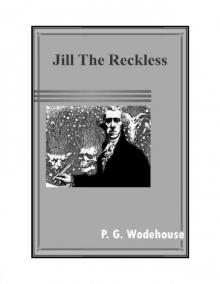 Jill the Reckless
Jill the Reckless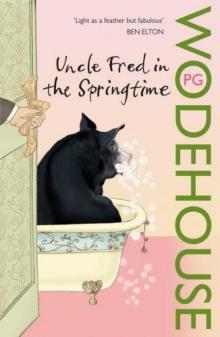 Uncle Fred in the Springtime
Uncle Fred in the Springtime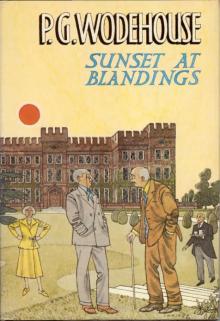 Sunset at Blandings
Sunset at Blandings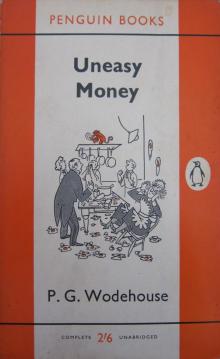 Uneasy Money
Uneasy Money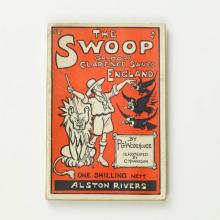 The Swoop! or, How Clarence Saved England: A Tale of the Great Invasion
The Swoop! or, How Clarence Saved England: A Tale of the Great Invasion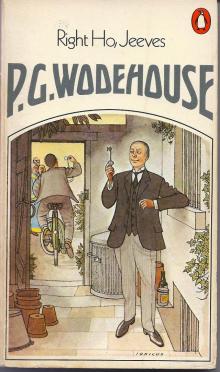 Right Ho, Jeeves
Right Ho, Jeeves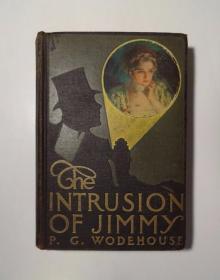 The Intrusion of Jimmy
The Intrusion of Jimmy The Jeeves Omnibus - Vol 1:
The Jeeves Omnibus - Vol 1: Aunts Aren't Gentlemen:
Aunts Aren't Gentlemen: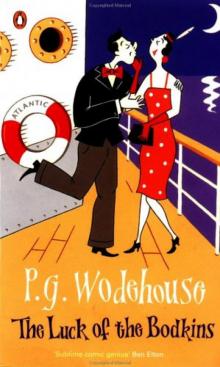 The Luck of the Bodkins
The Luck of the Bodkins The Little Nugget
The Little Nugget Money for Nothing
Money for Nothing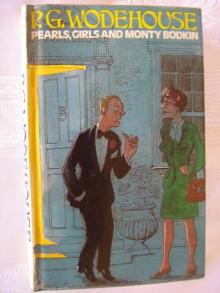 Pearls, Girls and Monty Bodkin
Pearls, Girls and Monty Bodkin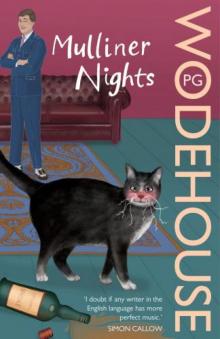 Mulliner Nights
Mulliner Nights Blandings Castle and Elsewhere
Blandings Castle and Elsewhere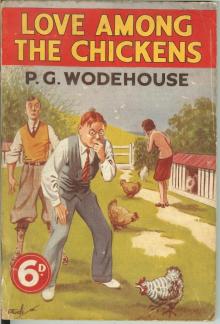 Love Among the Chickens
Love Among the Chickens Carry On, Jeeves!
Carry On, Jeeves!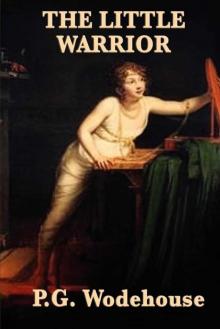 The Little Warrior
The Little Warrior Ice in the Bedroom
Ice in the Bedroom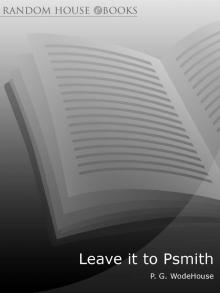 Leave It to Psmith
Leave It to Psmith Thank You, Jeeves:
Thank You, Jeeves: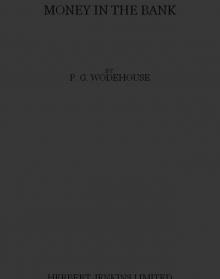 Money in the Bank
Money in the Bank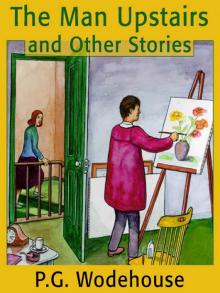 The Man Upstairs and Other Stories
The Man Upstairs and Other Stories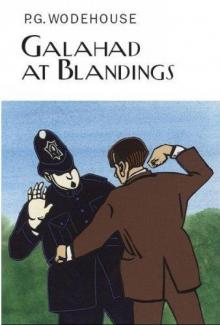 Galahad at Blandings
Galahad at Blandings The Jeeves Omnibus Vol. 5
The Jeeves Omnibus Vol. 5 Uncle Dynamite
Uncle Dynamite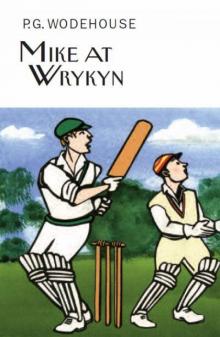 Mike at Wrykyn
Mike at Wrykyn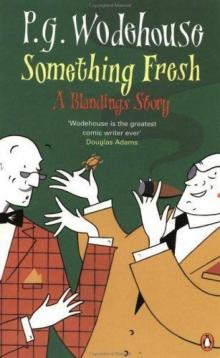 Something Fresh
Something Fresh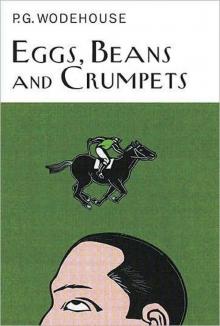 Eggs, Beans and Crumpets
Eggs, Beans and Crumpets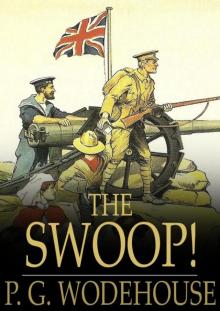 The Swoop: How Clarence Saved England (Forgotten Books)
The Swoop: How Clarence Saved England (Forgotten Books)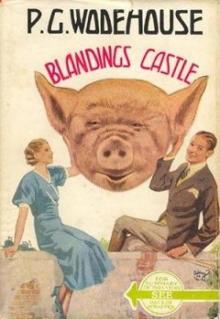 Blanding Castle Omnibus
Blanding Castle Omnibus Wodehouse at the Wicket: A Cricketing Anthology
Wodehouse at the Wicket: A Cricketing Anthology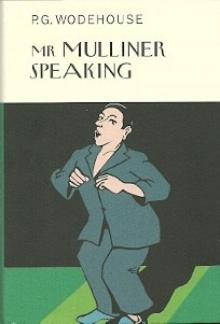 Mr. Mulliner Speaking
Mr. Mulliner Speaking Hot Water
Hot Water The Jeeves Omnibus - Vol 3: The Mating Season / Ring for Jeeves / Very Good, Jeeves
The Jeeves Omnibus - Vol 3: The Mating Season / Ring for Jeeves / Very Good, Jeeves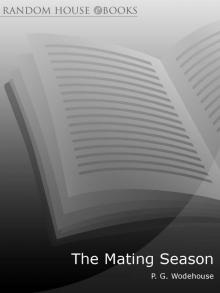 The Mating Season
The Mating Season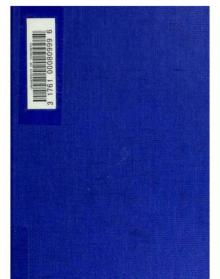 Meet Mr. Mulliner
Meet Mr. Mulliner The Man with Two Left Feet, and Other Stories
The Man with Two Left Feet, and Other Stories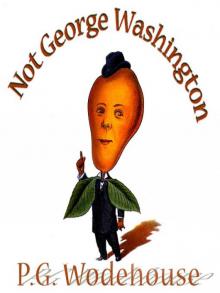 Not George Washington — an Autobiographical Novel
Not George Washington — an Autobiographical Novel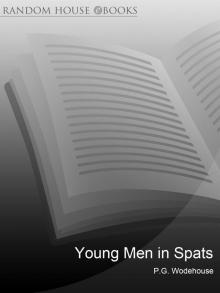 Young Men in Spats
Young Men in Spats The Jeeves Omnibus Vol. 4
The Jeeves Omnibus Vol. 4 A Pelican at Blandings:
A Pelican at Blandings: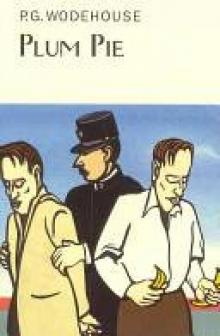 Plum Pie
Plum Pie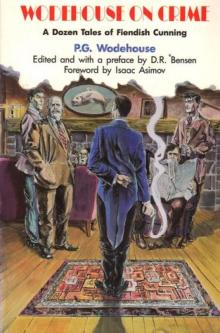 Wodehouse On Crime
Wodehouse On Crime The Jeeves Omnibus Vol. 2: Right Ho, Jeeves / Joy in the Morning / Carry On, Jeeves
The Jeeves Omnibus Vol. 2: Right Ho, Jeeves / Joy in the Morning / Carry On, Jeeves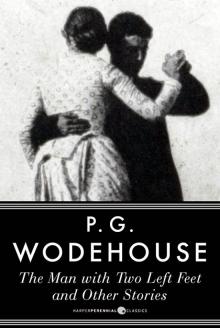 The Man With Two Left Feet
The Man With Two Left Feet Full Moon:
Full Moon: Jeeves and the Feudal Spirit:
Jeeves and the Feudal Spirit: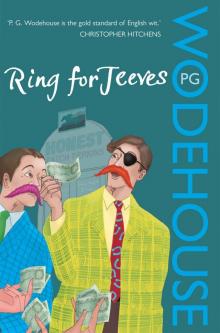 Ring For Jeeves
Ring For Jeeves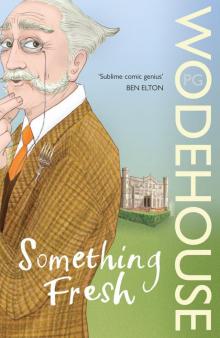 Something New
Something New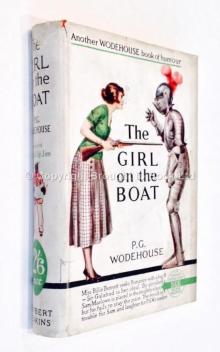 The Girl on the Boat
The Girl on the Boat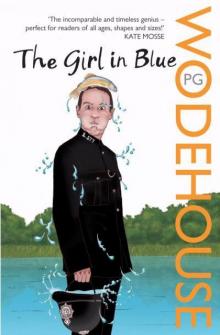 The Girl in Blue
The Girl in Blue Pigs Have Wings:
Pigs Have Wings: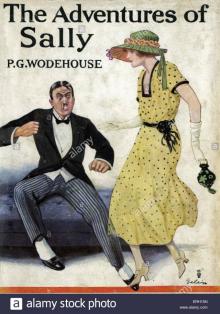 The Adventures of Sally
The Adventures of Sally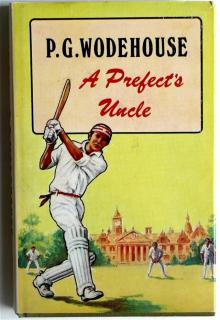 A Prefect's Uncle
A Prefect's Uncle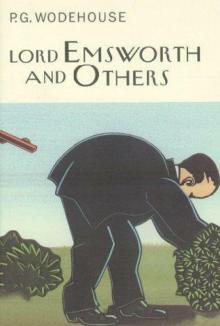 Lord Emsworth and Others
Lord Emsworth and Others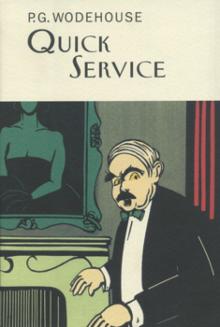 Quick Service
Quick Service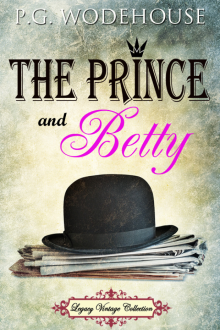 The Prince and Betty
The Prince and Betty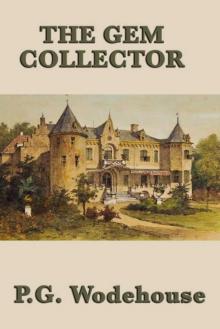 The Gem Collector
The Gem Collector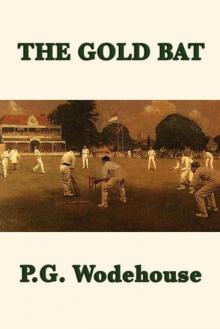 The Gold Bat
The Gold Bat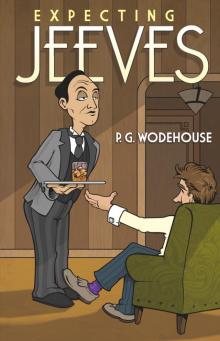 Expecting Jeeves
Expecting Jeeves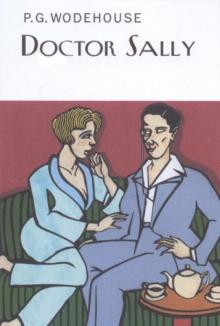 Doctor Sally
Doctor Sally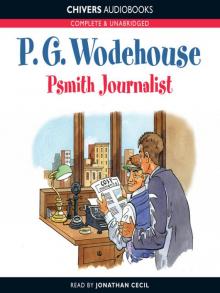 Psmith, Journalist
Psmith, Journalist The Golf Omnibus
The Golf Omnibus Heavy Weather
Heavy Weather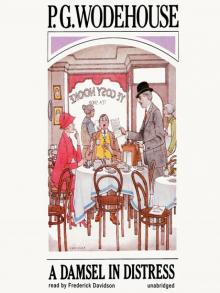 A Damsel in Distress
A Damsel in Distress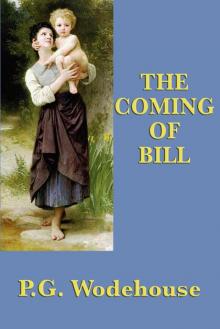 The Coming of Bill
The Coming of Bill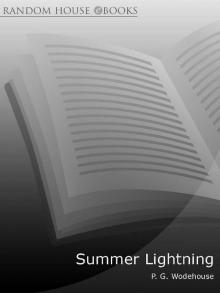 Summer Lightning
Summer Lightning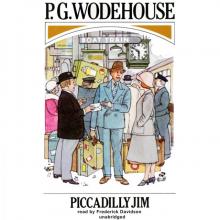 Piccadilly Jim
Piccadilly Jim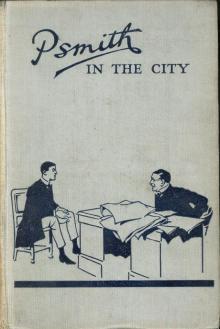 Psmith in the City
Psmith in the City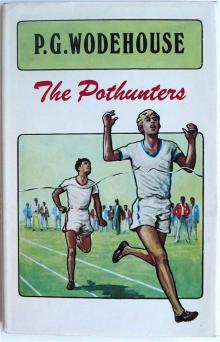 The Pothunters
The Pothunters Service With a Smile
Service With a Smile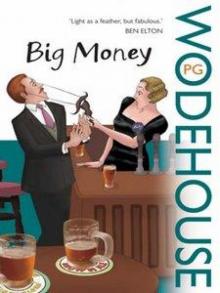 Big Money
Big Money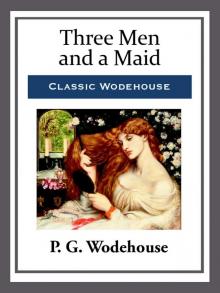 Three Men and a Maid
Three Men and a Maid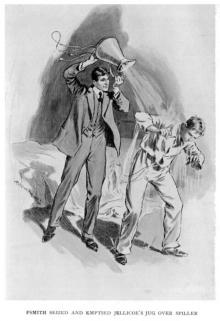 Mike and Psmith
Mike and Psmith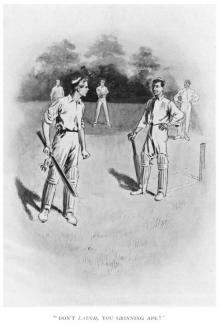 Mike
Mike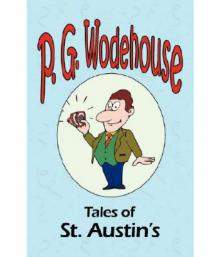 Tales of St. Austin's
Tales of St. Austin's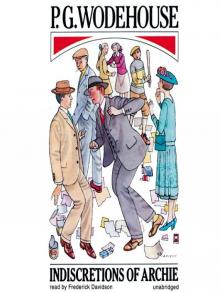 Indiscretions of Archie
Indiscretions of Archie Pigs Have Wings
Pigs Have Wings The Jeeves Omnibus - Vol 4: (Jeeves & Wooster): No.4
The Jeeves Omnibus - Vol 4: (Jeeves & Wooster): No.4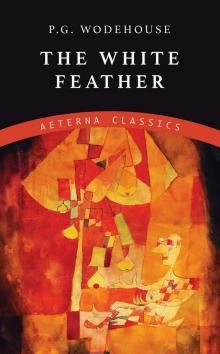 The White Feather
The White Feather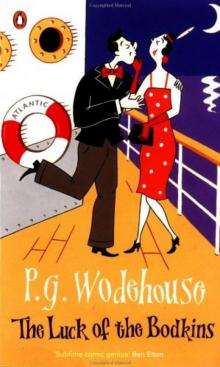 Luck of the Bodkins
Luck of the Bodkins THE SPRING SUIT
THE SPRING SUIT Full Moon
Full Moon Very Good, Jeeves
Very Good, Jeeves Thank You, Jeeves
Thank You, Jeeves Reginald's Record Knock.
Reginald's Record Knock. Wodehouse At the Wicket
Wodehouse At the Wicket LADIES AND GENTLEMEN V. PLAYERS
LADIES AND GENTLEMEN V. PLAYERS The Jeeves Omnibus - Vol 5: (Jeeves & Wooster)
The Jeeves Omnibus - Vol 5: (Jeeves & Wooster) The Jeeves Omnibus - Vol 1: (Jeeves & Wooster): No.1
The Jeeves Omnibus - Vol 1: (Jeeves & Wooster): No.1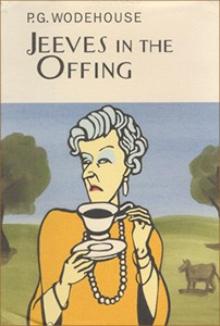 Jeeves in the offing jaw-12
Jeeves in the offing jaw-12